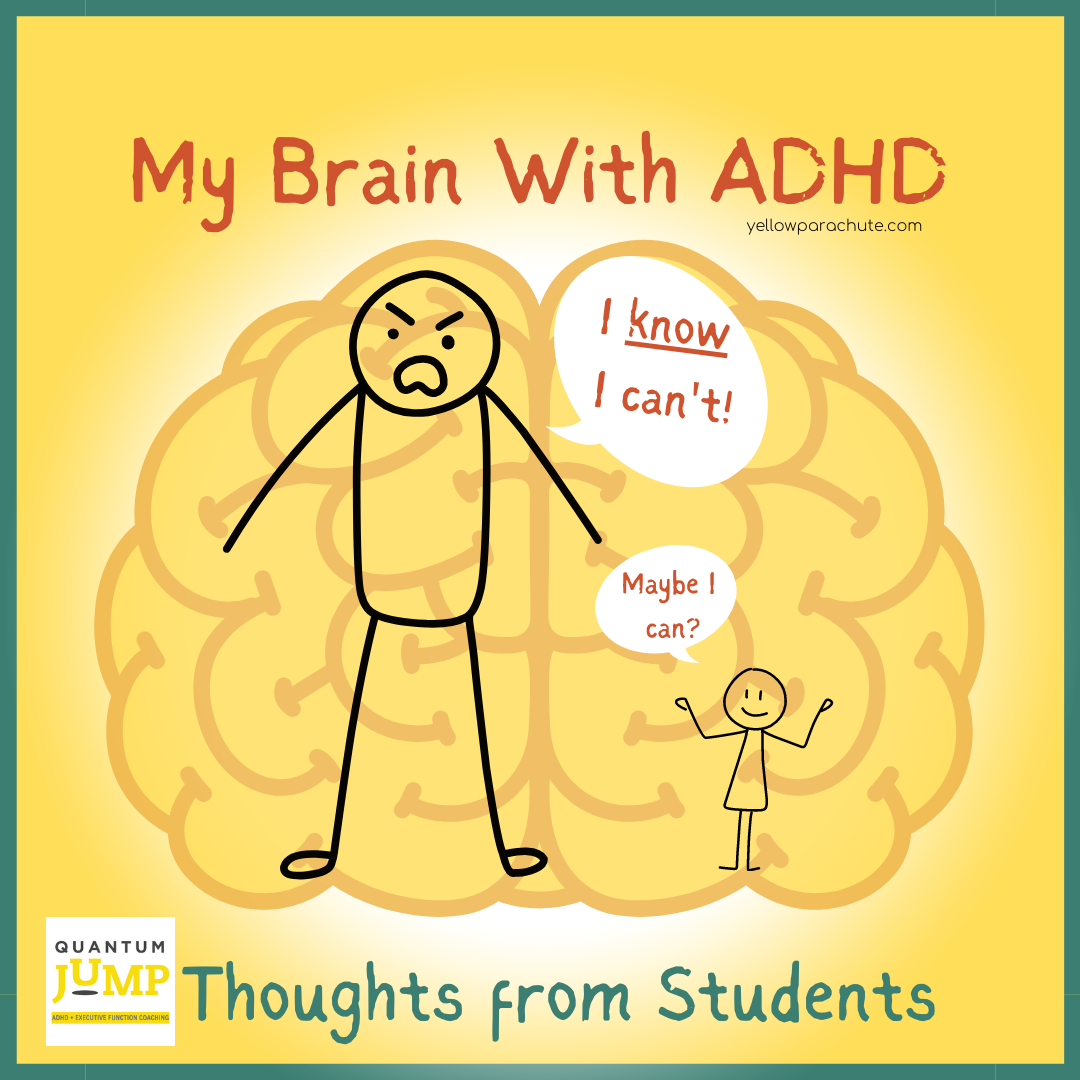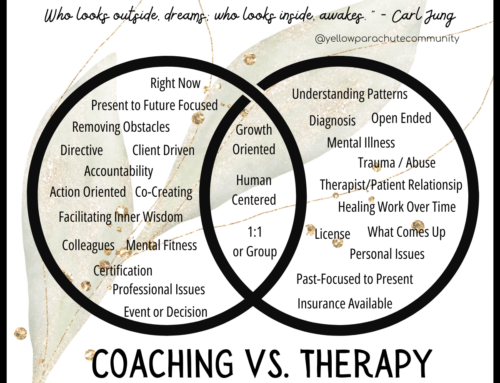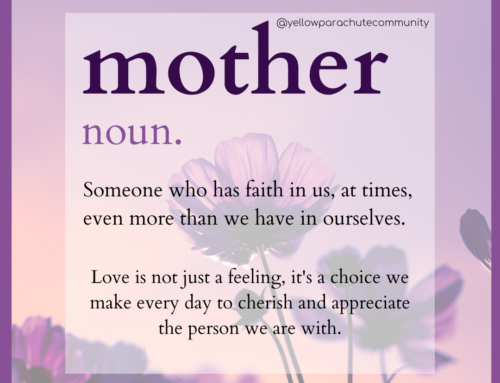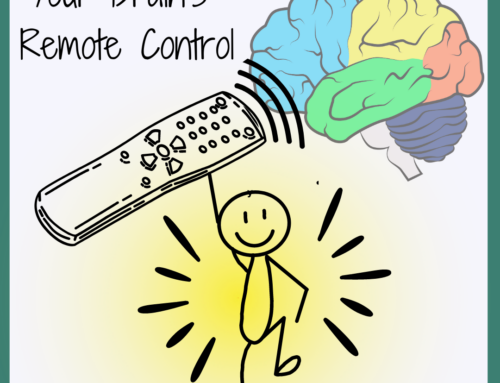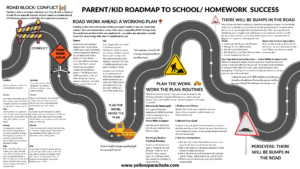“What does it feel like when you feel like you can’t do something?” I ask.
“It’s kind of like this,” he gestures for my apple pencil and begins to sketch in orange, “There’s a big figure with a big voice that shouts, ‘I know I can’t.‘ That big, scary voice kind of crowds everything else out. And then I just can’t. It’s overwhelming.”
He continues to sketch and adds, “but then there’s a smaller voice that says, ‘Maybe…I can?‘ That smaller voice is really quiet. And it asks a question instead of saying a fact. It can’t overpower the big voice. But it’s there. It never goes away, not really. It’s hope.”
“Wow,” I say in astonishment as he adds final details to the smaller figure. Our heads have come together to externalize an experience that I have lived thousands upon thousands of times. (This is, by the way, the first time we have worked together.) “Thanks for sharing that with me. It’s really cool that we can use our words and drawings, together, to figure this stuff out. It’s so helpful for me to understand how that feels for you, and I’ve felt that way before too,” I add in affirmation.
“Sometimes I can draw things better than I can say them,” he says with a smile, a little sparkle in his eyes.
“So, that big voice, it sounds really powerful,” I say, referring back to the drawing, “And it doesn’t seem to have your best interests in mind – like what’s best for you. Is it angry or frustrated or mean or scared?”
“A little bit of everything,” he says, “And it doesn’t want what’s right for me. Not really.”
“Hmm, let’s continue to talk more about that. I wonder, do you have an idea of what can we do to help the smaller figure, the hope, flex its muscles, so that little by little over time it gets stronger?” I ask.
“That’s what I want to do this summer,” he answers. I can hear the confidence grow in his voice. And he goes back to sketching. A series of drawings emerges, the figures changing sizes to become more and more equal over time.
“I think you just flexed hope,” I say, smiling back at him.
And our summer plan is born.
…
How about you? Have you felt the big “I know I can’t” voice more powerfully than the “Maybe I can?” voice? Whatever your age, whether you have executive function struggles or not, you will surely experience this. In your personal life, professional life, in every role you play. Your kids will experience this too. And the best possible thing you can do this summer is to practice flexing your “Maybe I can?” voice together with your family members.
Flexing this voice is the foundational step in coaching the executives in your brain. It’s the foundational step to doing anything – especially learning how to learn which we equate to a successful, meaningful, purposeful life. We’ll come back to that! But first, let’s flex hope.
First, my student so poignantly expressed, sometimes hope cowers from the bigger, more powerful “I can’t” voices in our heads. But hope never goes away completely. If we listen carefully, it is always there. And there are important things we can do to cultivate it.
Second, hope becomes tangible when we set realistic goals, create a plan to get there, and believe that we can continue to try to reach them.
Third, here’s how you can start … right NOW!
5 Steps to Flex Hope This Summer
- Download The “I Can” Summer Template (FREE!) from my coaching site BecomeUnstoppableU.com and print copies for your family members or open on an iPad using Notability. (There are some words in cursive – heads up.)
- Follow the calendar prompts for the week and individual days. Keep it simple. Schedule your priorities. Try out and create morning and evening routines you can stick to. Make notes on the ones that work best for you.
- Practice journaling on the pages each day – any way you can make it happen! Focus on mental, physical, and spiritual well being – whatever they mean to you.
- Notice and add your “I can’t” and “maybe I can” thoughts each day, and circle the rating that shows how you feel at the end of the day. Try your best not to miss twice in a row; but even more importantly, don’t give up!
- By the end of the summer you’ll have some new routines and some AMAZING data on how to make your school year routine better than ever.
Let’s do this! Because anything worth while takes time. And if you need a little BOOST, we’ve got that too! Take a look at our summer How to Learn Courses for middle and high school students starting at the end of June. You don’t want to miss this good stuff!
Yours on the journey,
Cara

